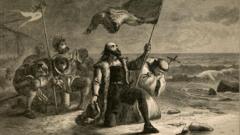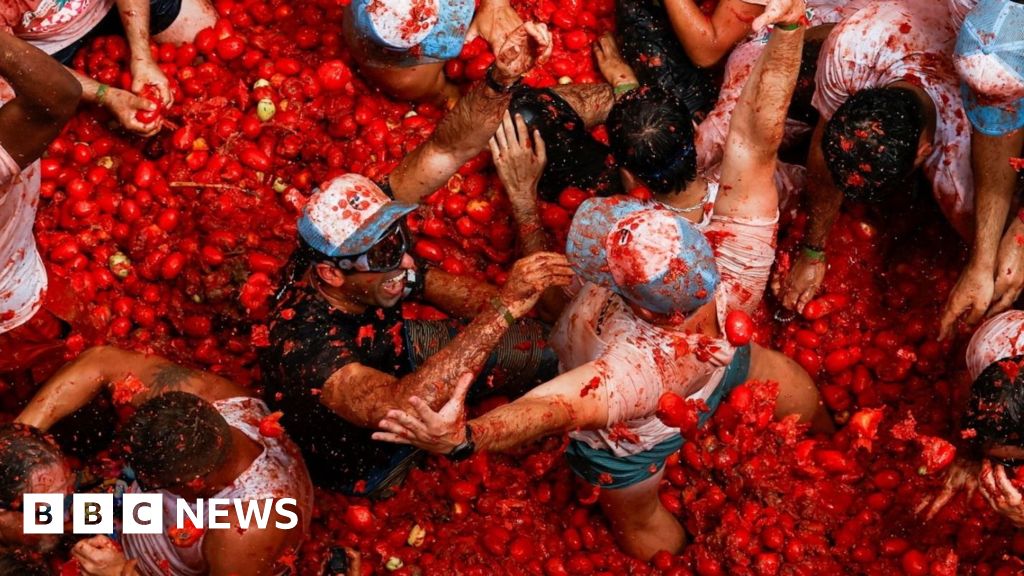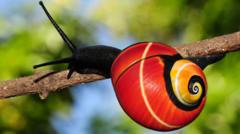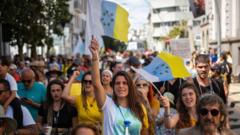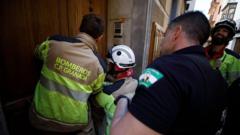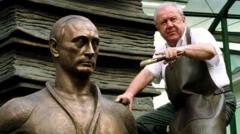In a groundbreaking development that challenges long-standing beliefs, a new genetic study conducted by Spanish scientists suggests that famed explorer Christopher Columbus was likely of Spanish and Jewish heritage. This research, which has been unfolding for over two decades, aims to provide clarity on a mystery that has intrigued historians for centuries. The findings indicate that Columbus, whose 1492 expedition across the Atlantic changed the course of world history, was probably born in western Europe, possibly in the Spanish city of Valencia. Furthermore, it is believed he may have concealed his Jewish identity or converted to Catholicism to escape the rampant religious persecution of the time.
Traditionally, Columbus was thought to be an Italian from Genoa, a theory that many historians have debated over the years. Notably, his expedition, backed by Spain's Catholic Monarchs, was intended to establish a new route to Asia, though it famously resulted in the discovery of the Caribbean, marking the start of European exploration and colonization of the Americas.
Research has long grappled with more than 25 conflicting theories regarding Columbus's birthplace, with claims extending across Europe from Poland to Scandinavia. The latest study, initiated in 2003, involved the exhumation of remains believed to be Columbus's from Seville Cathedral, along with DNA samples from his son, Hernando, and brother, Diego. These samples were then meticulously compared to genetic information from his known relatives and historical figures, revealing a compelling possibility that he was indeed a Spaniard of Jewish descent.
This revelation comes against the backdrop of Spanish history, where in 1492, coinciding with Columbus's journey, approximately 300,000 Jews in Spain were forced to convert to Catholicism or face expulsion. This critical context lends weight to the new theory of Columbus's background.
Announcing the study's results in a television documentary titled "Columbus DNA: His True Origin," Professor José Antonio Lorente, who led the research, claimed the findings to be "almost absolutely reliable." The documentary aired on Spain's RTVE on Spain's National Day, a time that marks Columbus's historic arrival in the Americas—a move that set into motion profound and far-reaching consequences, both celebratory and tragic, still discussed today.
This study not only sheds new light on the life of one of history's most renowned explorers but also rewrites a pivotal chapter of our collective past, suggesting an accomplished voyager masking his heritage amidst a changing world.
Traditionally, Columbus was thought to be an Italian from Genoa, a theory that many historians have debated over the years. Notably, his expedition, backed by Spain's Catholic Monarchs, was intended to establish a new route to Asia, though it famously resulted in the discovery of the Caribbean, marking the start of European exploration and colonization of the Americas.
Research has long grappled with more than 25 conflicting theories regarding Columbus's birthplace, with claims extending across Europe from Poland to Scandinavia. The latest study, initiated in 2003, involved the exhumation of remains believed to be Columbus's from Seville Cathedral, along with DNA samples from his son, Hernando, and brother, Diego. These samples were then meticulously compared to genetic information from his known relatives and historical figures, revealing a compelling possibility that he was indeed a Spaniard of Jewish descent.
This revelation comes against the backdrop of Spanish history, where in 1492, coinciding with Columbus's journey, approximately 300,000 Jews in Spain were forced to convert to Catholicism or face expulsion. This critical context lends weight to the new theory of Columbus's background.
Announcing the study's results in a television documentary titled "Columbus DNA: His True Origin," Professor José Antonio Lorente, who led the research, claimed the findings to be "almost absolutely reliable." The documentary aired on Spain's RTVE on Spain's National Day, a time that marks Columbus's historic arrival in the Americas—a move that set into motion profound and far-reaching consequences, both celebratory and tragic, still discussed today.
This study not only sheds new light on the life of one of history's most renowned explorers but also rewrites a pivotal chapter of our collective past, suggesting an accomplished voyager masking his heritage amidst a changing world.

